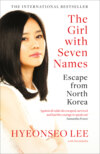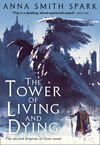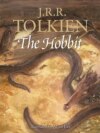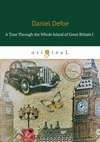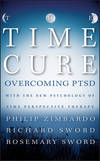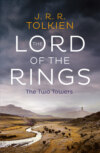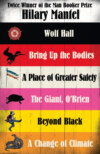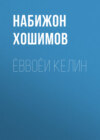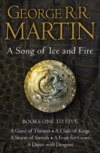Kitabı oku: «The Girl with Seven Names», sayfa 6
Chapter 12
Tragedy at the bridge
I was about to turn fourteen, by the Korean way of measuring age. It was January 1994, the beginning of an eventful and tragic year that made me grow up quickly.
I was now almost as tall as my mother. I was fit and active, playing a lot of sport, which I enjoyed very much – ice skating, becoming good enough to represent the school in a tournament, and taekwondo indoors when the weather was cold. I was a good runner, and had run the Hyesan half-marathon.
My birthday, however, got the year off to a terrible start.
I had long been pushing my luck with my appearance. The teachers had never taken much notice when I didn’t wear the school uniform – they knew they could depend on my mother when the school needed cash donations, or fuel for heating. But I was not a child any more, and my nonconformity was becoming conspicuous.
The inevitable happened.
A new teacher had joined the school a few months previously. Her name was Mrs Kang, and she taught physics. She was a young woman, with small, sharp eyes and a shrill voice. On the day of my birthday she wished us good morning, and noticed me immediately. Every girl was in school uniform and all had short hair, no longer than shoulder length. I stood out a mile in my pink Chinese coat and my perm, and a new pair of tall, fashionable boots.
Her eyes froze on the boots, and I knew I’d gone too far.
‘Why are you wearing those?’ She was addressing me in front of the whole class. ‘And for that matter, why aren’t you ever in uniform, like everyone else?’
Before I could stop myself the words were out. ‘Why do you have a problem? My mother doesn’t.’
The room tensed.
‘How dare you talk back to me!’ She was shrieking, and marching up to my desk. ‘You want to look like some rotten capitalist? Fine!’ She swung her arm out and slapped me hard across the face.
I put my hand to my cheek. The blood was singing in my ears. I was shaking, and outraged. My mother had never slapped me. I stormed out of the class, and ran home in tears.
That day, for the first time in a long time, I yearned for the comfort and security my father always provided, but he was away again, on a business trip to China. Each time he came home he seemed more and more tired and subdued. My mother said he wasn’t sleeping. Something was wrong. He’d told her he thought he was being watched.
I realize now that having the nerve to wear those boots and perm my hair was just a symptom of a deeper and general disillusion I was feeling. I was falling out of love with the ‘organizational life’ and the collective activities that no one in the country was exempt from. Now that I was fourteen I was no longer a Pioneer, and had to join the Socialist Youth League. This was another important milestone. We were told to start thinking of our futures, and of how we would serve our country. My childhood was over.
Members of the Socialist Youth League had to undergo military training. I had to put on army fatigues and learn how to shoot with live ammunition at a firing range in Hyesan. I hated this so much, and my mother was so nervous about me being surrounded by children with guns, where accidents could easily happen, and sometimes did, that she got me excused by bribing the school authorities with cash.
Ideological indoctrination intensified. As model communist youths we were now expected to deepen our emotional bond with the Great Leader, and start learning about the Party’s ideology of juche (loosely translated as ‘self-reliance’), which promoted our country’s isolation and rejection of all foreign influences.
I was now part of a Socialist Youth League ‘cell’ within my secondary school. Fortunately, I managed to avoid joining the Maintenance of Social Order Brigade – the vigilantes who monitored the streets for citizens whose ideological purity had lapsed. By 1994 there were several additions to the list of banned items. Now the youths were cracking down on anyone caught wearing clothing with Western lettering, which was in vogue in China.
By the time spring came there was no avoiding the revolutionary duty we all had to undertake: the pilgrimage to the sacred sites surrounding Mount Paektu. The mountains of Ryanggang Province were where Kim Il-sung fought as a guerrilla against the Japanese in the 1930s and 1940s. To mark this significance, three of the province’s eleven counties were renamed after the great man’s wife, father and uncle. Young Pioneers and Socialist Youth from all over North Korea visited this ‘outdoor revolutionary museum’, with its statues and monuments to the Great Leader’s victories, and a nearby village called Pochonbo, where in 1937 he had led a band of 150 guerrillas in an attack on the local Japanese police station. The battle is famous in North Korean history as the great turning point in the struggle for Korean independence, and stunning proof of Kim Il-sung’s tactical genius, winning victory in the face of overwhelming odds.
Our guide showed us bullet holes on the old police station, circled in white, and a cell where the Japanese had tortured communist partisans. None of this impressed me. I just wanted to get out of there. With a tremendous effort I had to control my face to hide my boredom.
Only when I finally saw, with my own eyes, the preserved log cabin beneath the pines on the slopes of Mount Paektu, the site of the secret guerrilla base where Kim Jong-il was born, did I feel like a child again, just for a moment. I remembered painting the cabin, and the star in the sky, and the rainbow over Mount Paektu. This magical story still had the power to move me.
The disaffection I was feeling meant that my relationship with Min-ho wasn’t getting any better. He was at elementary school in Hyesan. He’d hear from the boys in his year what a cute girl their older brothers thought I was. He must have thought they were talking about someone else. I still wasn’t friends with him in the way I should have been. Deep down I wanted an older brother to protect me, not a kid I had to watch out for. He was now seven years old and developing quite an adventurous streak – I strongly suspected him of making secret forays of his own to the opposite bank of the river. He could be dogged, too. Given a chore, he’d get on with it. His school once gave the students an absurd quota of ten kilos each of berries to pick. He was the only one to hit the target. In that sense he was quite unlike me, who would find excuses to avoid physical work and not get my nice clothes dirty. The one thing we both had in common was the Hyesan stubbornness, like our mother’s.
A few days after the visit to Mount Paektu I came home from school to find my mother pacing around the house in a state of high anxiety.
‘Your father’s still not back,’ she said, folding and unfolding her arms.
My father was supposed to have returned from his business trip to China the previous day. She said he had seemed particularly anxious before leaving.
Two days went by and still he did not return.
By the third day my mother was a wreck. She could not relax, sleep, eat, or sit still. She tried several times to contact the bureau of the trading company where he worked, but each time was stonewalled and told to wait for information.
Another day passed in a dismal limbo. Min-ho was constantly asking if someone could check where our father was.
Finally, a work colleague from the trading company called at the house.
The news was not good.
My father had been arrested four days ago at the Friendship Bridge as he crossed the border back into North Korea.
Chapter 13
Sunlight on dark water
A group of men from Pyongyang were waiting for my father at the bridge. They were officers of the Military Security Command. This organization is separate from the Ministry of State Security, the Bowibu. It is a secret police that watches the military.
Another ten days went by with no news. We knew only that he had been detained while investigations were made into his business conduct. To the outside world my mother presented the hardened, no-nonsense mask she always wore. At home, she became brittle and tearful. She began to steel herself for the worst. She knew that few people ever emerged from such detentions unharmed, or even emerged at all. I had never seen her like this.
It was while she was in this restless state that she told me a family story I had never heard before. It concerned the marriage of Aunt Old, my mother’s eldest sister. She had been married before I was born and had three children I did not know about. Her husband had been a Korean-Chinese man who had escaped the Cultural Revolution in China in the late 1960s to what he thought was a communist utopia in North Korea. My mother said he was a kind man with a very forthright and honest nature. My grandmother opposed the marriage because he was a foreigner, but Aunt Old said she would rather die if she couldn’t be with him. And so they were married.
After a few years he got sick of the propaganda and said he wanted to return to China. Aunt Old refused to leave home, so he went alone, and was stopped at the border. Had he told the border police he simply wanted to visit family in China and return to North Korea, he might have got off lightly. But his honesty was his undoing. He told his interrogators that he had become disenchanted. They sent him straight to a political prison camp without trial. My grandmother then stepped in to protect the family and fixed it so that Aunt Old could divorce her husband and put the three children up for adoption. This way, the family could avoid the guilt by association with a ‘criminal element’ that would degrade their songbun and blight the family for generations. This is a common arrangement when a spouse is imprisoned.
The three children were each adopted by good families. One of them became an army officer. Aunt Old met him when he had grown up, and told him the story. He broke down and hugged her, swearing that he didn’t care about his family background and from then on wanted his real mother and siblings to be his family.
This son travelled to the prison camp to try and meet his father, but was turned away at the gates. There are two kinds of prison in the gulag. One is for prisoners sentenced to ‘revolutionary re-education through labour’. If they survive their punishment they will be released back into society, and monitored closely for the rest of their lives. The other is a zone of no return – prisoners there are worked to death. The son feared that his father was in the second type, and was still there.
This story distressed me a lot. On the rare occasions we mentioned anyone we knew who had fallen foul of the authorities we did so without analysis or judgement, or any comment on the fairness of the punishment. We just described the bare facts. That’s how North Koreans talk. But now my mother was speaking emotionally of how the gulag had affected our own family.
No one spoke openly of the gulag. We knew of it only through terrifying rumours and whispers. We did not know where the camps were located or what conditions there were like. All I knew about was Baekam County, a less extreme place of punishment not far from Hyesan. We knew a family who’d been deported there from Pyongyang because the father had rolled a cigarette using a square of cut newspaper without noticing that the Great Leader’s face was printed on the other side. His whole family was sent to the mountains for a backbreaking life of potato digging on the 10.18 Collective Farm.
Now I was picturing my father being sent to a prison camp. A great fog swirled in my head. The resentment I’d felt towards him was becoming a mess of confused feelings.
While we were waiting for news, five uniformed military officials hammered on our door one evening, entered without removing their boots, and ransacked our home in search of cash and valuables my father had allegedly hidden. They ripped open the walls, tore up the floor and pulled down the ceiling. They left, empty-handed, after an hour of destruction. My mother and I were in shock as we stared about at the damage. Our house was completely wrecked.
About two weeks after my father had disappeared, my mother was told that he had suddenly been released to the hospital in Hyesan. When she saw him she was overwhelmed, and began sobbing freely. His appearance shocked her. He was haggard, with sunken eyes, but he tried to give her a grin. He seemed much older.
The investigation into him was still ongoing, he said. He’d been accused of bribery and abuse of position. A more likely reason was that he had fallen out of political favour, or had put some senior cadre’s nose out of joint. He had been interrogated many times, and ordered to write his confession over and over again. Each time, the interrogator ripped it up in his face and told him to start again.
My mother did not ask what else they had done to him. She did not want him to relive the trauma, but she could see that he had been badly beaten, and had not been allowed to sleep. At the hospital he slept for days with the covers pulled over his head.
My father kept everything bottled up, as many North Korean men did. They could not talk about their feelings, or mention the fear and stress they were under. It was the reason I would see terrible drunken fights breaking out among men in Hyesan during the public holidays. My father never drank alcohol, but he turned his feelings inward. He had lost a lot of weight, and had become very listless. We realize now that he had fallen into a severe depression, an illness that is not acknowledged in North Korea. He spent about six weeks in the hospital in Hyesan.
My mother needed Min-ho and me out of the way while she tended to my father, visiting him daily for hours at the hospital. We were sent to the east coast to stay with Uncle Cinema, his wife, and their children, my cousins.
One afternoon, Uncle Cinema came home early. Min-ho and I were in the living room with our aunt and our cousins. He took his shoes off and stepped into the house, closing the door carefully behind him.
‘Min-young, Min-ho, I am afraid I have bad news,’ he said.
He looked grave and we knew something terrible had happened. He told us that our mother had telephoned him at his office. She said that our father had fallen very ill in hospital, and had died.
Min-ho was devastated. He ran into the bedroom and shut the door.
I walked numbly down to the beach and gazed out into the East Sea. From behind the clouds sharp rays made fields of light on the dark water. A few distant, rusted shipping boats were on the horizon. The sea was calm.
The resentment I had nurtured towards my father had put such a wall between us. Why had I done that? I grew up understanding the importance of family and blood ties. Discovering that my blood did not come from him had shocked me and confused me. I had frozen him out. I was hurt by a secret that had been kept from me.
I thought of how he’d met my mother, all those years ago on the train to Pyongyang. He had loved her so much that he had married her even though she was divorced and had a child by another man. Memories came back to me, dozens of them, of our happy times chasing dragonflies in fields near Anju, and of our family life in Hamhung, of the fun we’d all had together watching my mother eat naengmyeon, of how proud I’d been of him when he came to my Pioneer ceremony, how safe I’d always felt with him.
I stared at the sea and the scale of my folly came home to me.
He’d raised me lovingly, as his own child. My selfish feelings had stopped me seeing how much I loved him.
I fell to my knees on the beach and cried bitter tears, clawing with my hands at the sand.
After what seemed like hours, as the sun was setting, I walked back to the house. I knew that I would regret for the rest of my life the way I’d behaved towards my father. Knowing that he’d died thinking that I resented him would only make my bereavement more painful over the years ahead.
My father’s death was a shock to everyone who knew him. He was still a young man, barely into his forties. No one was with him when he died.
But before my mother had time to react to the blow of his death, she received another devastating piece of news. The hospital death certificate stated that he had committed suicide by overdosing on Diazepam (Valium). This drug was readily available in the markets. He must have gone out and bought it himself.
In North Korea, suicide is taboo. Not only is it considered gravely humiliating to the surviving family members, it also guarantees that any children left behind will be reclassified as ‘hostile’ in the songbun system and denied university entrance and the chance of a good job. Suicide in Korean culture is a highly emotive means of protest. The regime regards it as a form of defection. By punishing the surviving family, the regime attempts to disable this ultimate form of protest.
My mother was jolted out of her grief. She acted at once to protect us all.
She had to get the hospital documentation changed very quickly, and this was a delicate and difficult task, but our futures depended on it. My mother’s tact and diplomacy succeeded. It cost her nearly all her hard-currency savings, but she did it. She bribed the hospital authorities. They agreed to change the cause of my father’s death to ‘heart attack’. The funeral was conducted in haste, before any questions were asked, and before Min-ho and I had arrived back from the coast. We did not even get a chance to say goodbye to him. Even worse, my father’s parents had cursed my mother angrily at the funeral, telling her that she had brought ill fortune upon their family.
As a final, gratuitous humiliation, the investigating military authority wrote to inform my mother that my father had been formally dismissed from his post.
After my father’s death I felt much closer to Min-ho. It was as if I was seeing him with clear vision for the first time in years. The stupid delusion that had made me withdraw from my father was the same one that had stopped me feeling close to my own sibling. I started to see him for who he was – my brother, as bereaved and as heartbroken as I was.
I no longer felt the same about our house on the river. Within a short time of moving there we’d had a tragedy in the family. It made me think the curse on the place was real, and potent.
We were still trying to come to terms with what had happened, when an event occurred that united the entire country in grief – in such wailing, brow-beating scenes of mass hysteria as the world’s media had never before seen. It was an event that reverberates in North Korea to this day.
Chapter 14
‘The great heart has stopped beating’
I went to school as usual on the morning of 8 July 1994. Just before lunchtime, our lesson was interrupted when a teacher entered and told us that the school was closing for the day. We were all instructed to return home and turn on the television. This was odd, since there was no daytime television during weekdays.
Instead of going home, I went with a girl friend to her apartment near the school. We turned on the television. Shortly after, the famous news anchor Ri Chun-hui came on, dressed in black. Her eyes were red from crying. She then announced the impossible. Kim Il-sung, the Great Leader, the father of our nation, was dead. The announcement made on the radio was equally dramatic: ‘The great heart has stopped beating.’
My friend broke into a wail and couldn’t stop. Her crying affected me a little, but it was my mind that was moved, not my heart. How could he die? Incredible as it may sound now, it had never occurred to me, or to many North Koreans, that this god-king, so powerful that he could control the weather, might die. He was flawless and almighty. He existed so far above humankind that a part of me didn’t think he was real. We did not even think he needed to sleep or urinate. But he’d died.
A door opened in my mind.
He’s an eighty-two-year-old man, I thought. He grew old and weak. He was human after all. I sat there listening to my friend’s sobs, but my eyes were dry. I was too raw with grief for my father to spend my tears on the Great Leader.
The next morning the entire school gathered in front of the school building. We stood in long, regimented lines. The sky was a milky blue and the day was warming up uncomfortably. Emotional speeches were made by the headmaster and the teachers, all of whom were choking with tears, to a background accompaniment of piped funeral music. Hour after hour it went on. I had felt sad at first, but after three hours of standing under the hot sun, I was becoming thirsty and tired.
Nobody had ordered us to cry. No one had hinted that if we didn’t cry we would fall under suspicion. But we knew our tears were being demanded. From all around me came the sounds of sniffing, sobbing and wailing. It looked as if everyone was beside themselves with grief. My survival instinct kicked in. If I didn’t cry like everyone else I’d be in trouble. So I rubbed my face in false distress, surreptitiously spat on my fingertips, and dabbed my eyes. I made a gasping noise that I hoped sounded like I was heaving with despair.
After a long time doing this, I felt I could not stand there for much longer. The sun now was overhead. It was very warm. So I stumbled a little. The teachers thought I was about to faint, so they put me in the ambulance that was there on standby. That was a relief.
The next day there was a similar event joined by all the city’s schools at the Victorious Battle of Pochonbo Memorial in Hyesan Park. This time several thousand students and teachers joined in the sobbing and the wailing. The grief seemed to be getting more extreme by the hour. A kind of hysteria was spreading across the city. Our schooling stopped. The steel and lumber mills, the factories, shops and markets closed. Every citizen had to participate in daily mass events to demonstrate their inconsolable sorrow. Day after day a teacher took us into the hills to pick wild flowers to place before the bronze statue of Kim Il-sung in Hyesan Park. After a few days, every flower had been picked, but we had to find them from somewhere. To turn up with one flower was an insult to the Great Leader.
On one of these searches for flowers a swarm of dragonflies flew alongside us in the field.
‘Look.’ In a voice full of wonder the teacher said: ‘Even the dragonflies are sad at the Great Leader’s death.’
She was being serious, and we took the comment uncritically.
After the mourning period, as I’d feared might happen, punishment awaited those who had shed too few tears. On the day classes resumed the entire student body gathered in front of the school to hurl criticism and abuse at a girl accused of faking her tears. The girl was terrified, and this time really crying. I felt sorry for her, but my main emotion was relief. As a fake crier myself, I was just glad no one had seen through my performance.
Many adults across the city were similarly accused and the Bowibu made a spate of arrests. It wasn’t long before notices began appearing, giving the time and place for clusters of public executions.
It is mandatory from elementary school to attend public executions. Often classes would be cancelled so students could go. Factories would send their workers, to ensure a large crowd. I always tried to avoid attending, but on one occasion that summer I made an exception, because I knew one of the men being killed. Many people in Hyesan knew him. You might think the execution of an acquaintance is the last thing you’d want to see. In fact, people made excuses not to go if they didn’t know the victim. But if they knew the victim, they felt obliged to go, as they would to a funeral.
He was in his twenties and always seemed to have money. He was popular with the girls, and had followers among the city’s hoodlums. His crime was helping people to escape to China and selling banned goods. But his real offence was to continue his illegal activity during the mourning period following Kim Il-sung’s death.
He was to be shot along with three others at Hyesan Airport, a common site for executions. The three men were brought out of a van before a large crowd waiting in the glaring heat. Immediately, people around me began to whisper. The popular guy had to be lifted up and dragged to the post by a group of police, with the tips of his feet scraping along in the dust. He seemed half dead already.
Each of the three had his head, chest and waist tied to a stake. His hands and feet were tied together behind the stake. A perfunctory people’s trial opened, in which the judge announced that the criminals had confessed their crimes. He asked if they had any last words. He wasn’t expecting a response, since all three had been gagged and had stones pushed into their mouths to stop them cursing the regime with their final breath.
Three uniformed marksmen then lined up opposite each of them, and took aim. The marksmen’s faces were flushed, I noticed. Executioners were known to drink alcohol beforehand. The noise of the reports ricocheted in the dry air – three shots, the first in the head; the second in the chest; the third in the stomach. When the shot hit the popular guy’s head, it exploded, leaving a fine pink mist. His family had been forced to watch from the front row.
Ücretsiz ön izlemeyi tamamladınız.
